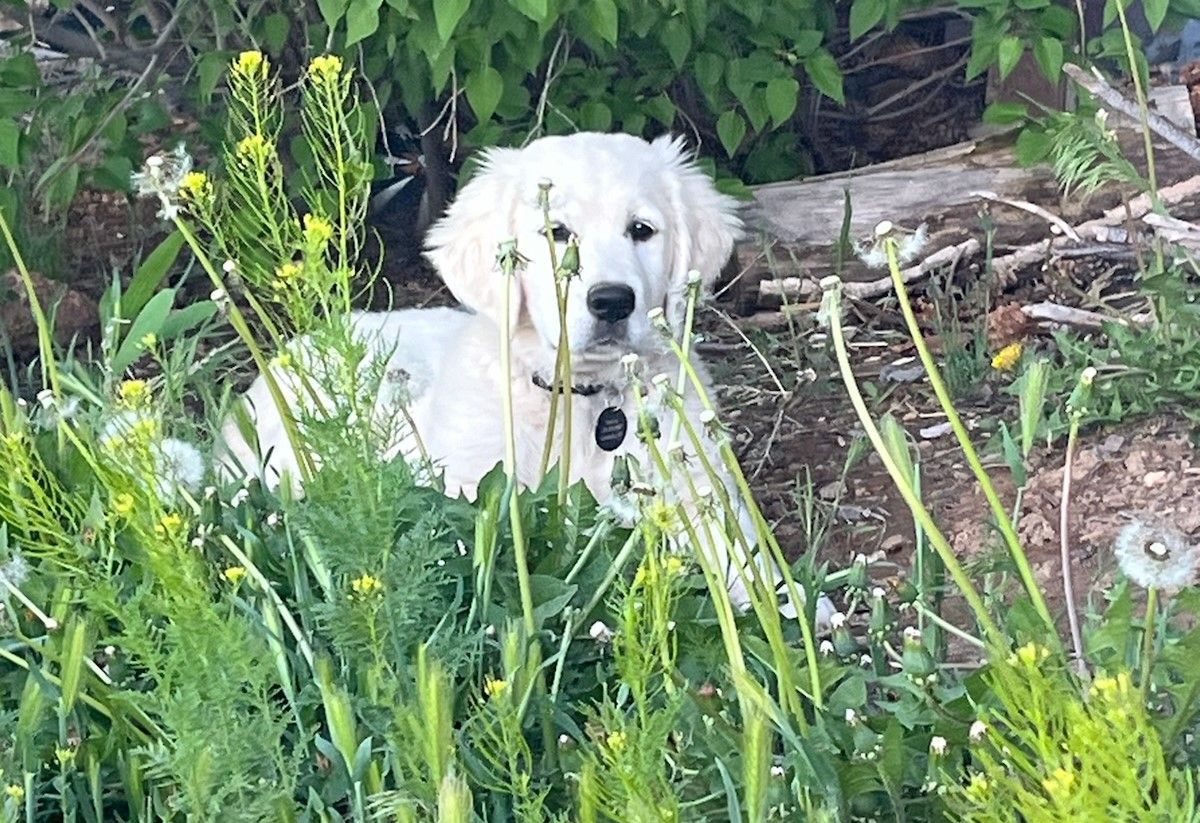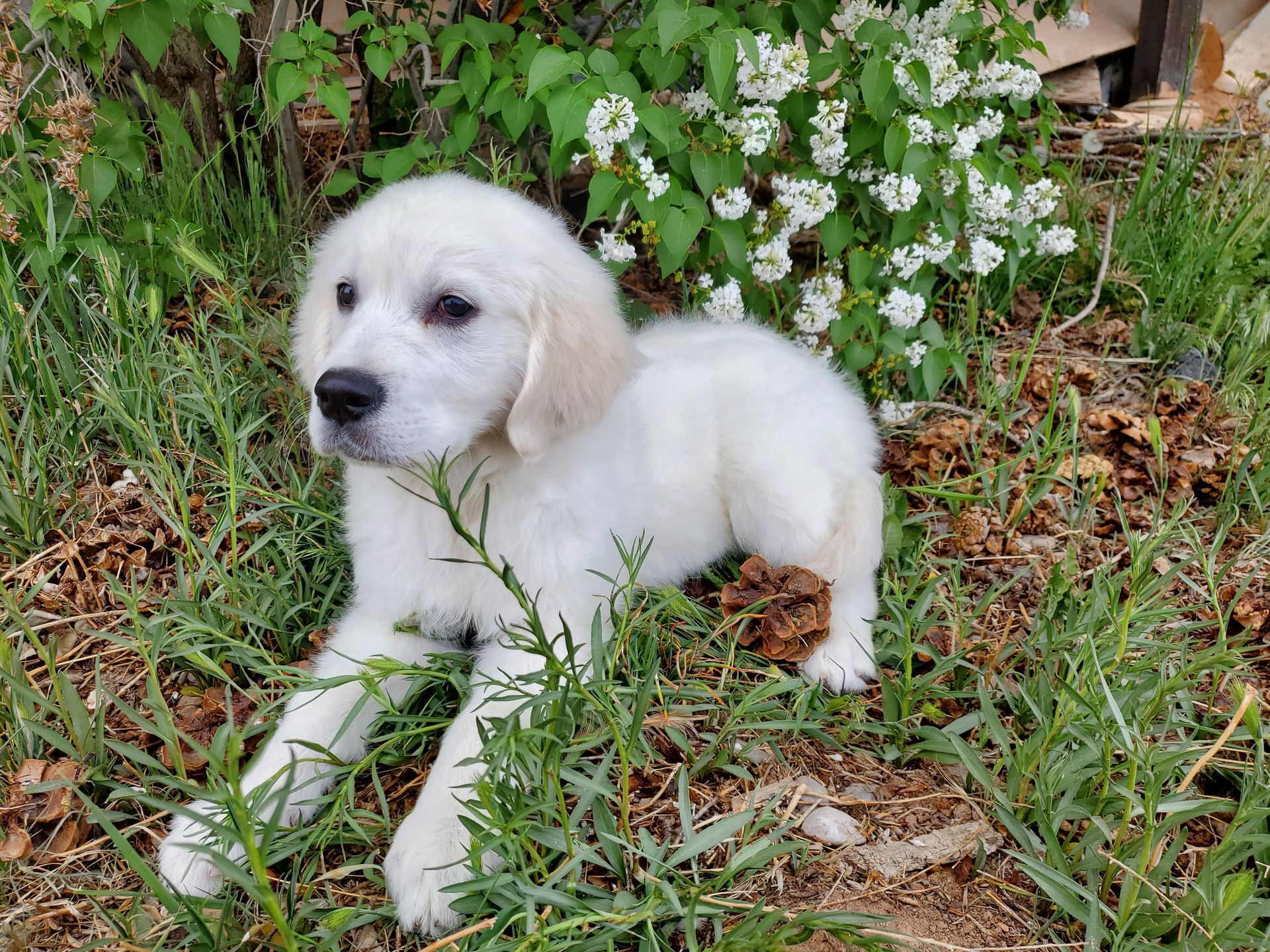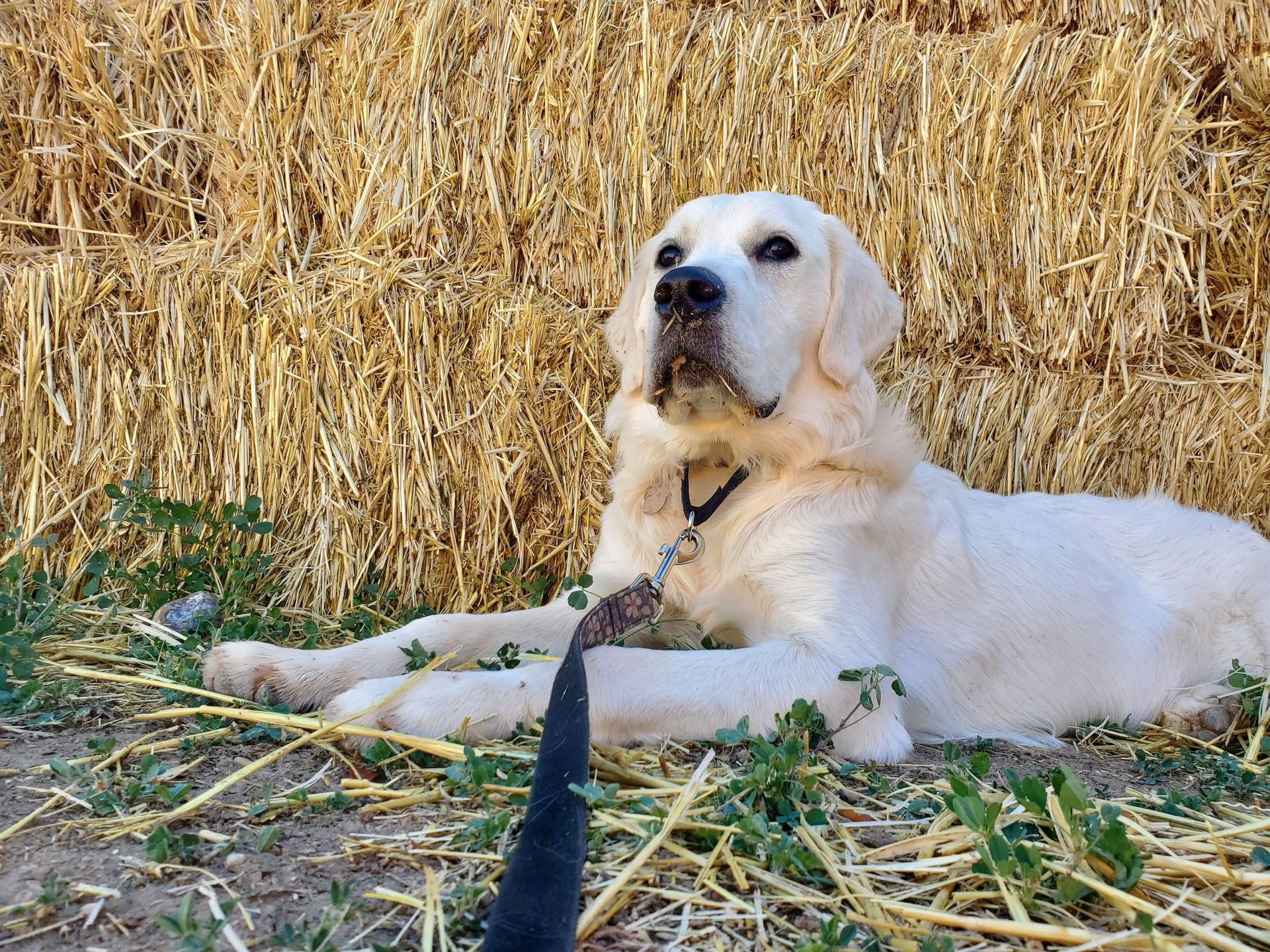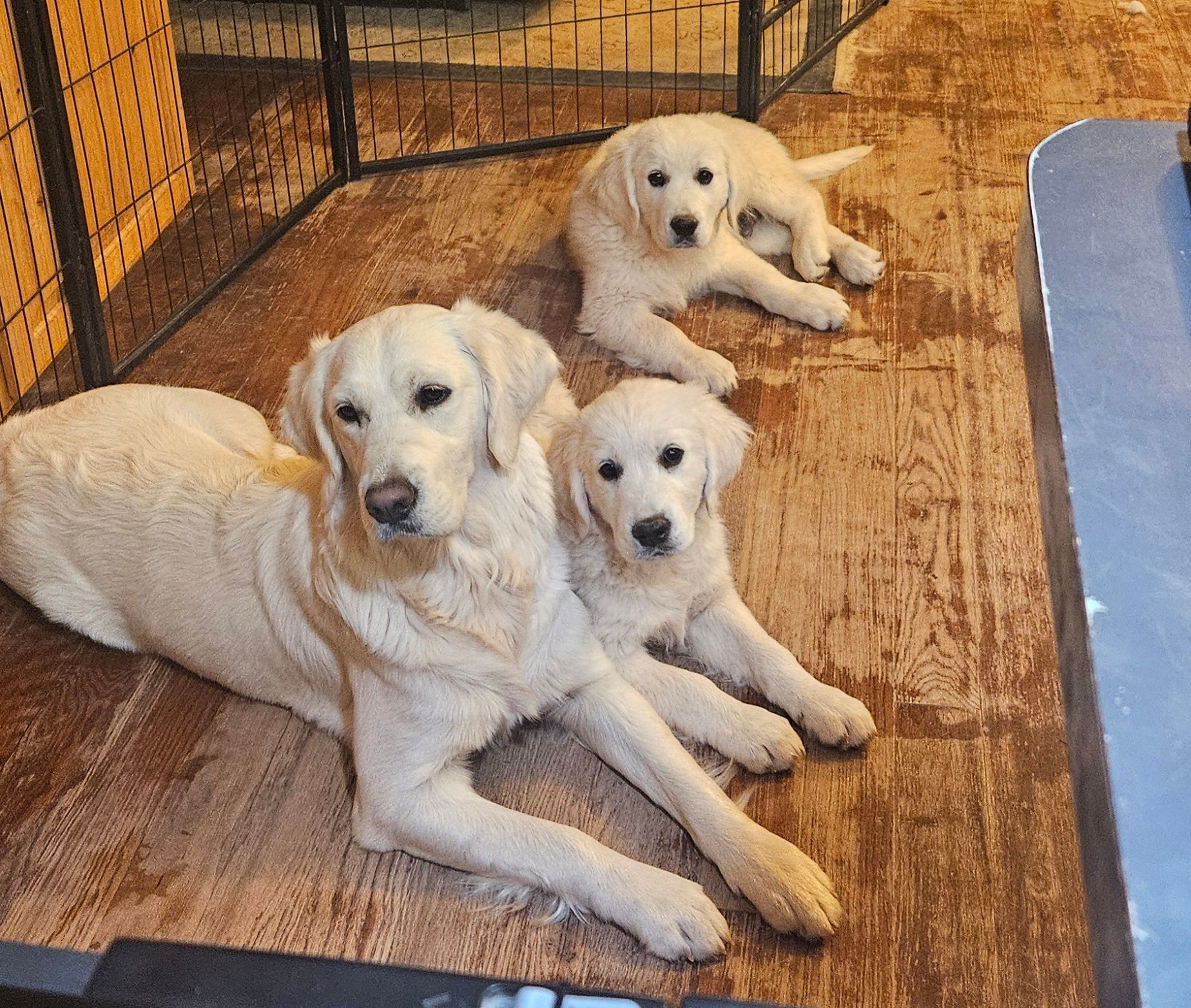Welcome to Golden Virtues Blog
Whether you're a proud Golden owner or considering bringing one into your family, this blog is dedicated to providing training tips, care advice, and essential insights to help you raise a happy, healthy pup. From obedience training and socialization to grooming and nutrition, we cover everything you need to know to ensure your Golden Retriever thrives. Check back often to see new posts.
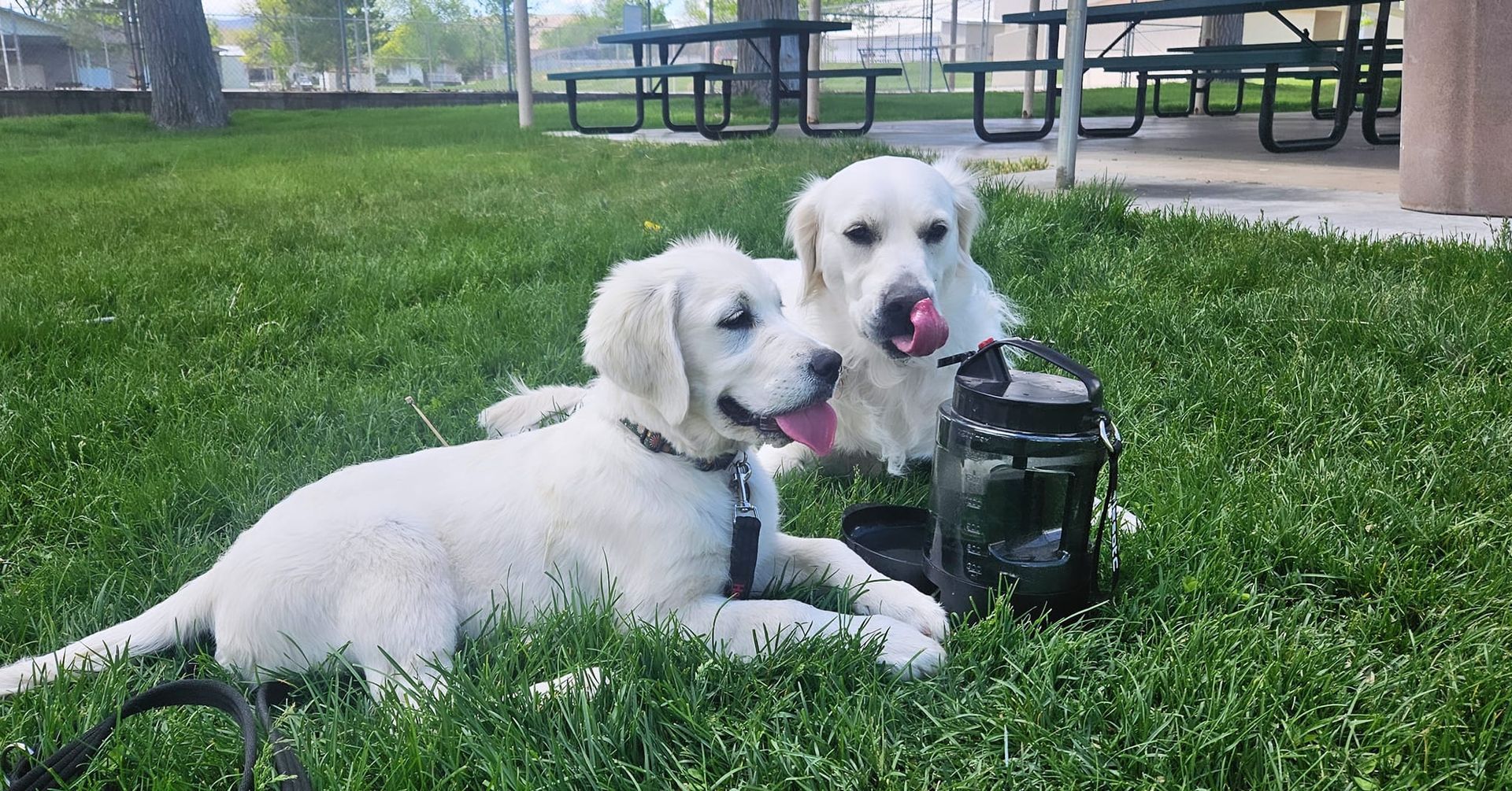
By Heather Monroe
•
March 1, 2025
The Ultimate Guide to Human Food Safety for Dogs: What’s Safe and What’s Not Many dog owners find it hard to resist those puppy eyes begging for a taste of their food. While sharing human food with your furry friend might seem harmless, not all foods that are safe for humans are safe for dogs. In fact, some can be toxic or lead to serious health issues. Whether you’ve fed your dog scraps from the table or are just curious about what’s safe, this guide will help you navigate the world of human food and your dog’s health. Why You Should Be Cautious About Feeding Human Food to Dogs Dogs have different digestive systems from humans, and certain foods that are harmless to us can cause digestive upset, toxicity, or long-term health problems for them. Although many dog owners are guilty of sneaking their dog a treat from their plate, it’s important to be aware of what is safe and what isn’t. Let’s break it down into safe and unsafe food categories, with helpful guidelines on each. Safe Human Foods for Dogs While it’s best to feed your dog a balanced, vet-approved diet, there are some human foods that are safe for dogs in moderation. These can be used as occasional treats or healthy supplements to their meals. 1. Vegetables Many vegetables are packed with vitamins and nutrients that can be beneficial for your dog. Just make sure they’re served plain (without seasoning) and avoid giving too much at once to prevent digestive upset. Safe Veggies : Carrots, Pumpkin, Sweet Potatoes, Beets, Broccoli, Brussel Sprouts, Cabbage, Cauliflower, Celery, Cucumber, Green Beans, Lettuce, Peas, Cooked Potatoes, Spinach, Squash, Corn Health Benefits : Carrots and sweet potatoes, for example, are great for eye health due to their beta-carotene content. Green beans are low-calorie snacks that provide fiber, while pumpkin can help regulate digestion. 2. Fruits Many fruits can make refreshing and healthy treats for dogs. Be sure to remove any seeds, pits, or peels that may be harmful. Safe Fruits : Watermelon, Blueberries, Apples (seedless), Cantaloupe, Honeydew, Pears, Mango, Oranges, Peaches (without the pit), Pineapple, Plums (pitted) Health Benefits : Blueberries are packed with antioxidants, apples are high in fiber and vitamins, and watermelon is great for hydration. 3. Dairy Some dairy products are safe for dogs, but they should be given in small amounts since many dogs are lactose intolerant. Safe Dairy Products : Cheese, Eggs, Plain Yogurt (unsweetened) Health Benefits : Plain yogurt can aid in digestion due to its probiotics, and eggs are a great source of protein and healthy fats. Just be mindful of portion sizes, especially with cheese, as it can be high in fat. 4. Meats Cooked, unseasoned meats can be a good source of protein for your dog. Safe Meats : Beef, Chicken, Pork, Salmon, Turkey, Ham, Tuna (cooked and boneless) Health Benefits : Meats provide essential amino acids and fatty acids that help maintain muscle health and coat condition. Salmon, for example, is a great source of Omega-3s, which support skin and joint health. 5. Other Safe Foods There are some other human foods that are safe for dogs, but, again, moderation is key. Other Safe Foods : Bread, Brown Rice, Flax Seeds, Oatmeal, Pasta (plain), Peanut Butter (xylitol-free), Popcorn (plain), Pretzels (unsalted), Sunflower Seeds Health Benefits : Flax seeds are rich in Omega-3s, oatmeal is great for digestion, and small amounts of peanut butter can be a tasty reward during training (just be sure it’s free of xylitol, a toxic sweetener for dogs). Foods That Are NOT Safe for Dogs Some human foods can be extremely harmful to dogs, causing everything from mild digestive upset to serious health issues like organ failure. Avoid these foods at all costs, even if they seem harmless. 1. Vegetables to Avoid Certain vegetables contain compounds that are toxic to dogs and should never be fed to them. Unsafe Veggies : Chives, Garlic, Mushrooms, Onions, Potato Leaves and Stems, Rhubarb, Tomato Leaves and Stems Why They're Harmful : Onions and garlic can cause damage to your dog’s red blood cells, leading to anemia. Potato and tomato leaves contain solanine, which is toxic to dogs. 2. Fruits to Avoid While many fruits are safe, a few can be dangerous. Unsafe Fruits : Apple Seeds, Avocados, Grapes, Raisins Why They're Harmful : Grapes and raisins can cause kidney failure in dogs, and avocado contains persin, which can lead to vomiting and diarrhea. Apple seeds contain cyanide, which is toxic in larger quantities. 3. Meats to Avoid Some meats, or parts of meats, pose risks to your dog’s health. Unsafe Meats : Chicken Bones, Fat Trimmings, Fish Bones, Raw Meat Why They're Harmful : Chicken and fish bones can splinter and cause choking or damage to your dog’s digestive system. Raw meat can carry bacteria such as salmonella, leading to foodborne illnesses. 4. Other Foods to Avoid There are several other foods that should never be shared with your dog, as they can be highly toxic. Unsafe Foods : Alcohol, Candy, Gum, Chocolate, Coffee, and Teas, Macadamia Nuts, Salt, Sugar, Cinnamon (in large quantities), Xylitol, Yeast Dough Why They're Harmful : Xylitol, found in many sugar-free products, can cause a rapid insulin release leading to hypoglycemia (low blood sugar), seizures, or liver failure. Chocolate contains theobromine, which is toxic to dogs. Macadamia nuts can cause weakness, vomiting, and tremors, while alcohol and yeast dough can cause severe illness or even death. What to Do if Your Dog Eats Something Unsafe If your dog accidentally eats something toxic, contact your veterinarian immediately. Keep the Pet Poison Helpline number handy (1-855-764-7661 in the U.S.) or your local emergency vet clinic number. Symptoms of poisoning can vary depending on the food, but common signs include vomiting, diarrhea, lethargy, seizures, or difficulty breathing. Pro Tip : Don’t wait for symptoms to appear. If you know your dog has eaten something harmful, get professional help right away.
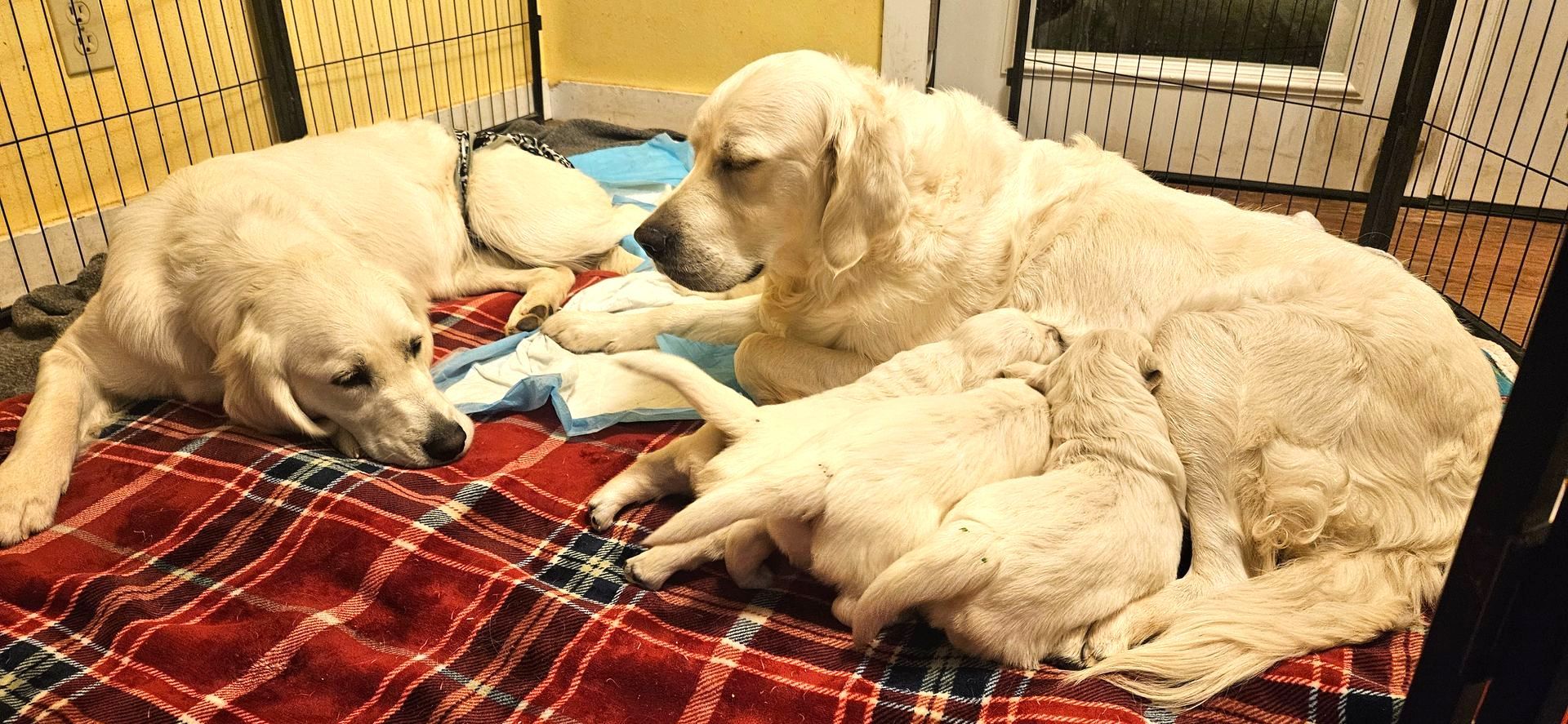
By Heather Monroe
•
December 1, 2024
The Ultimate Guide to Puppy Socialization: Why It’s Important and How to Do It Right Proper socialization is one of the most important aspects of raising a well-adjusted, confident dog. A puppy that is socialized early and consistently will be more likely to grow into a dog that can handle a wide range of environments, people, and experiences without anxiety or fear. On the other hand, dogs who miss out on socialization can become fearful, anxious, or even aggressive. In this guide, we’ll dive deep into what socialization is, why it’s critical for your puppy’s development, and how to successfully socialize your furry friend. Why Socialization is Essential for Puppies Socialization is about exposing your puppy to the world around them—sights, sounds, people, and other animals—in a positive and controlled way. The more experiences they have as puppies, the better equipped they’ll be to handle new situations as adults. Proper socialization leads to: · Less fear and anxiety : Socialized puppies learn that new people, environments, and sounds aren’t scary. This helps reduce fear-based behaviors like aggression or reactivity. · Confidence in new situations : Your dog will grow up feeling comfortable in different environments, from busy streets to quiet parks. · Positive interactions with people and animals : Socialized dogs are less likely to develop behavioral issues like fear-based aggression toward people, other dogs, or pets. When Should Socialization Begin? The critical window for socialization is between 3 and 16 weeks of age, but it's never too late to start. Puppies are naturally more curious during this time, making it the perfect opportunity to introduce them to new experiences. While socialization is most effective during this period, ongoing exposure to new environments and situations is essential throughout their life. How to Start Socializing Your Puppy 1. Introduce New Experiences Gradually Socialization doesn’t mean overwhelming your puppy with everything at once. Start slow and build up their exposure over time. For instance, begin by introducing them to a few new people in a calm setting before taking them to a busy outdoor event. · Tip : Short and positive sessions work best! Keep interactions brief and always end on a high note with praise or a treat. 2. Positive Reinforcement is Key Make every new experience enjoyable by offering plenty of praise and treats. Your goal is to teach your puppy that encountering new things is a positive experience. · Tip : If your puppy seems nervous, don’t force the situation. Give them space and try again later in a calmer environment. 3. Start with a Controlled Environment It’s important to start your puppy’s socialization in safe, controlled environments. Begin in your home and yard, gradually exposing them to new household items, people, and sounds. Puppy Socialization Checklist To make sure your puppy gets the full range of experiences, here’s a comprehensive checklist to guide you:
©2024 All Rights Reserved | The Golden Virtues | Designed by Consumr Buzz

